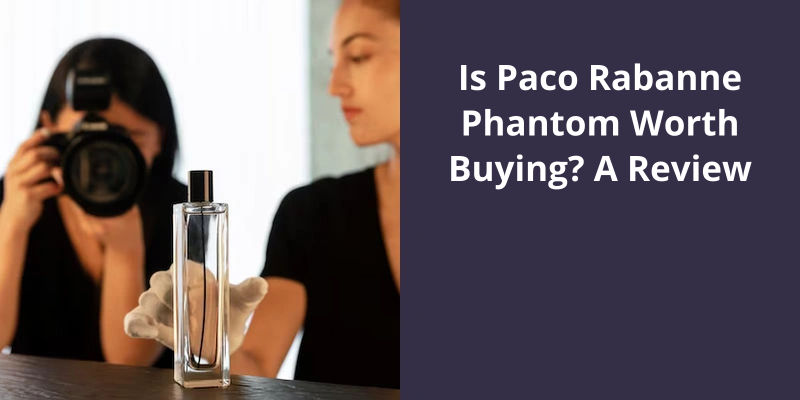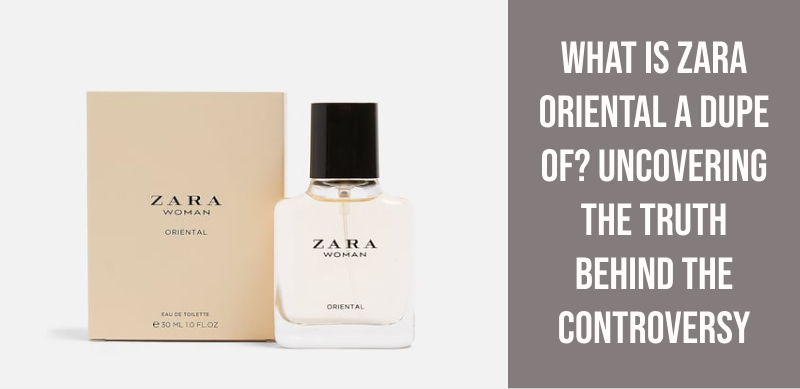Generic perfumes and oil perfumery differ mainly in composition, concentration, and longevity. Generic perfumes are often alcohol-based, diluted versions of original brands. They have a high content of alcohol and water, which makes the scent dissipate quickly, hence requiring frequent application. On the other hand, oil perfumery or perfume oils are highly concentrated and alcohol-free. They are pure scents without fillers, lasting longer on the skin as they gradually evaporate over time. With oil perfumery, you’re likely to experience the perfume’s true and deeper notes since it evolves throughout the day reflecting personal body chemistry.

Are Oil Fragrances Better?
Oil-based fragrances have been used for centuries in ancient cultures as a ritualistic form of scenting the body. The use of oil-based perfumes can be traced back to ancient Egypt and the Middle East. Many people associate oil fragrances with luxury and high-end cosmetics, often seen as a symbol of sophistication and elegance. There’s no doubt that oil perfumes are better for individuals with dry skin types as it moisturizes the skin while giving it a desirable aroma.
One of the biggest advantages of using oil-based perfumes is that they’re free from harsh chemicals and synthetic ingredients that are common in alcohol-based perfumes. This means that you’re less likely to experience any allergic reactions or skin irritation when using oil-based fragrances. Natural perfume oils contain essential oils which have holistic properties that could help enhance your mood and relieve stress.
Additionally, oil-based perfumes aren’t reactive to sunlight, and they don’t evaporate as quickly as alcohol-based perfumes. This means that a single application of oil-based perfume can last the whole day long, compared to alcohol-based perfumes which typically last only a few hours. Furthermore, fragrance oils are milder and less intense than alcohol-based perfumes which could easily overpower your body’s natural scent.
The aroma from essential oil blends can be adjusted to ones preference for soapy, floral, sweet, or woody scents. Customization extends to individuals who’re allergic to certain ingredients.
Overall, choosing between an oil-based or alcohol-based fragrance is a matter of personal choice, skin type, preference, and budget.
When it comes to choosing between perfume oils and sprays, the decision ultimately depends on your personal preference. While perfume oils last longer and are more cost-effective, they can be messy and tricky to apply. On the other hand, sprays are easy to use and convenient, but may not provide the same level of intensity. In the end, it’s all about finding the option that works best for you.
What Lasts Longer Perfume Oil or Spray?
When it comes to making a decision between perfume oil and spray, there are a number of factors to consider. One of the most important is longevity. While there are no hard and fast rules regarding which type of fragrance will last longer, it’s generally agreed that perfume oils tend to be more long-lasting than sprays. This is because perfume oils are more concentrated, meaning that they contain a higher concentration of fragrance than sprays.
This is because they’re more concentrated and tend to last longer, meaning that you’ll need less of them over time. However, it’s important to note that not all perfume oils are created equal. Some are of higher quality than others, meaning that they may cost more.
Simply spraying a fragrance onto your skin or clothing is quick and easy, and can be done in a matter of seconds. Perfume oils, on the other hand, can be more difficult to apply. They often come in small bottles with tiny openings, meaning that you’ll need to be careful when applying them in order to avoid spilling or wasting the fragrance.
One potential downside of perfume oils is that they can be messy. Since they’re more concentrated than sprays, they can be more difficult to apply without getting them on your clothes or skin. In addition, some people may find the strong scent of perfume oils to be overwhelming or unpleasant.
Differences in the Strength and Intensity of Fragrance Between Perfume Oil and Spray
Perfume oil and spray may have differences in the strength and intensity of fragrance due to the different methods of application. Perfume oil requires direct contact with the skin to scent the body, while spray distributes the scent in a wider area. This can result in a more concentrated fragrance with perfume oil, compared to a lighter scent with a spray.
However, there’s a lot more to unpack when it comes to the high cost of vintage perfume. From the rarity of certain scents to the nostalgia factor of owning a piece of history, there are many factors that contribute to the high price tag of vintage fragrances. Let’s explore this fascinating topic in more detail.
Why Is Vintage Perfume So Expensive?
Vintage perfumes are revered for their unique and complex scents that can’t be replicated with todays synthetic ingredients. These fragrances were created using high-quality raw materials that were harvested and distilled by hand. Because of the rarity of these ingredients, vintage perfumes are highly sought after and can command high prices at auction or in antique shops.
Lastly, the production of vintage perfumes was limited and often done in small batches, making them even more exclusive and difficult to find.
As time goes on, these fragrances become even rarer, making them even more valuable to those who seek them out for their unique and complex scents.
How to Identify Counterfeit Vintage Perfumes and Ensure Their Authenticity
- Check the packaging for misspellings, blurry text, or poor quality printing
- Examine the bottle closely for any flaws or imperfections
- Compare the scent to a known authentic version of the perfume
- Look for batch codes or serial numbers on the bottle or packaging
- Check the country of origin and age of the perfume
- Research the seller’s reputation and authenticity guarantees
- Seek expert opinion or use professional authentication services
However, this doesn’t mean that perfume oils are any less effective in terms of fragrance and longevity. In fact, they’ve a lot of benefits that make them a great alternative to traditional perfumes.
Why Are Perfume Oils Cheaper Than Perfume?
Additionally, perfume oils don’t contain the same amount of alcohol as their spray counterparts, which can be a big factor in cost. Alcohol is a cheaper ingredient than essential oils, which are often used in perfume oils. The higher concentration of essential oils and other natural ingredients in perfume oils is what makes them more expensive to produce.
Another reason for the price difference between perfume oils and traditional perfumes is the marketing strategy behind them. Designer perfume companies often invest millions of dollars in advertising campaigns that focus on the prestige of their brand and the unique experience that their fragrances offer. This high-end branding is reflected in the price of their products.
Consumers who’re familiar with perfume oils and appreciate the quality they offer will often seek them out without the need for flashy advertising campaigns. Since it’s the quality of the fragrance that matters most to these consumers, perfume oil companies can afford to keep their prices down and still maintain a loyal customer base.
While perfume oils may lack the same glamour and reputation as designer perfumes, they offer a concentrated, long-lasting fragrance that can be just as luxurious when applied correctly.
How to Properly Apply Perfume Oils for Maximum Effectiveness and Longevity.
- Apply perfume oils after showering or bathing to maximize absorption
- Apply perfume oils to pulse points such as wrists, neck, and behind ears
- Avoid rubbing perfume oils into skin as it can break down the fragrance
- Layer perfume oils with complementary scents, such as matching body wash and lotion
- Store perfume oils in a cool, dry place away from heat and sunlight to preserve the scent
- Reapply perfume oils throughout the day as needed for long-lasting fragrance
Source: 5 Major Differences Between Perfume Oils and Sprays
In considering the merits of perfume, there are some who argue that solid perfume is the superior choice. There are several reasons for this, including the fact that it can be more concentrated than liquid perfume, meaning that a small amount can go a long way. Additionally, it tends to last longer on the skin, making reapplication less necessary, and it can also be less expensive in the long run compared to liquid options. So how does solid perfume compare to perfume oil? Let’s take a closer look.
Is Perfume Oil or Solid Perfume Better?
Solid perfume is also more portable, making it easier to carry with you throughout the day. You won’t have to worry about a bulky bottle breaking in your purse or leaking in your luggage when you travel. Instead, solid perfume comes in a small, compact container that can easily fit in your pocket or bag.
Another benefit of solid perfume is it’s natural ingredients. Many solid perfumes are made with natural oils and essential oils, which are better for your skin and the environment. They don’t contain harsh chemicals or preservatives like liquid perfumes, which can irritate sensitive skin or cause allergies.
On the other hand, perfume oil also has it’s own unique advantages. Like solid perfume, it’s usually more concentrated than liquid perfume, so a little goes a long way. This means you can use less product and still achieve the same fragrance intensity as a liquid perfume.
Perfume oil also tends to have a longer lasting scent on the skin. This is because it’s absorbed more slowly into the skin, allowing the fragrance to linger for hours without having to reapply.
But if you prefer a faster-absorbing, highly concentrated fragrance with a longer-lasting scent, then perfume oil may be the better option.
Comparison of Perfume Oil and Eau De Parfum
Perfume oil is a concentrated fragrance that’s alcohol-free and has a longer-lasting scent compared to eau de parfum which is a mix of fragrance oils, alcohol, and water. Eau de parfum has a lighter and more refreshing aroma but lasts for a shorter period than perfume oil.
Aside from the design and labeling, there are other significant differences between original and generic perfumes that discerning consumers should know. These differences go beyond aesthetics and can affect the scent’s quality, performance, and overall experience. In this article, we will discuss these differences so that you can make informed decisions when buying perfumes.
What Is the Difference Between Original and Generic Perfumes?
However, the differences between original and generic perfumes go beyond just the label. For starters, the quality of the ingredients used in the fragrance is often quite different. Original perfumes use high-quality ingredients and tend to have a more complex scent profile. Generic perfumes, on the other hand, may use cheaper ingredients or rely on synthetic fragrances to mimic the scent of the original product. This can result in a fragrance that smells similar but lacks the depth and complexity of the real thing.
Generally speaking, original perfumes tend to last longer on the skin than their generic counterparts. This is because they use higher-quality ingredients that are better able to adhere to the skin and provide long-lasting fragrance. Conversely, generic fragrances may fade more quickly, requiring more frequent reapplication throughout the day.
One thing to keep in mind when comparing original and generic perfumes is the ethical concerns surrounding replica fragrances. Many generic perfumes are created by copying the scent of an original fragrance without permission from the creator. This can be seen as a form of intellectual property theft, as well as a violation of the creators artistic vision. While some consumers may not be concerned about the ethics of using replica scents, it’s important to consider the impact of our choices on the broader fragrance industry.
Conclusion
In conclusion, there’s a growing trend in the fragrances industry towards more natural and sustainable alternatives to generic perfumes. Oil perfumery offers a more personalized and long-lasting scent experience, while also being better for the environment. The use of high-quality ingredients and the blending techniques employed in oil perfumery allow for a unique and complex aroma that can’t be replicated by generic perfumes. Furthermore, the rise of oil perfumery aligns with the growing awareness and appreciation for craftsmanship, quality, and individuality. As consumers become more aware of the impact of their choices, the demand for natural, sustainable, and ethical products will only continue to increase. Ultimately, whether you choose generic perfumes or oil perfumery, it’s important to remember that the fragrance you wear should reflect and enhance your individuality and creativity.





